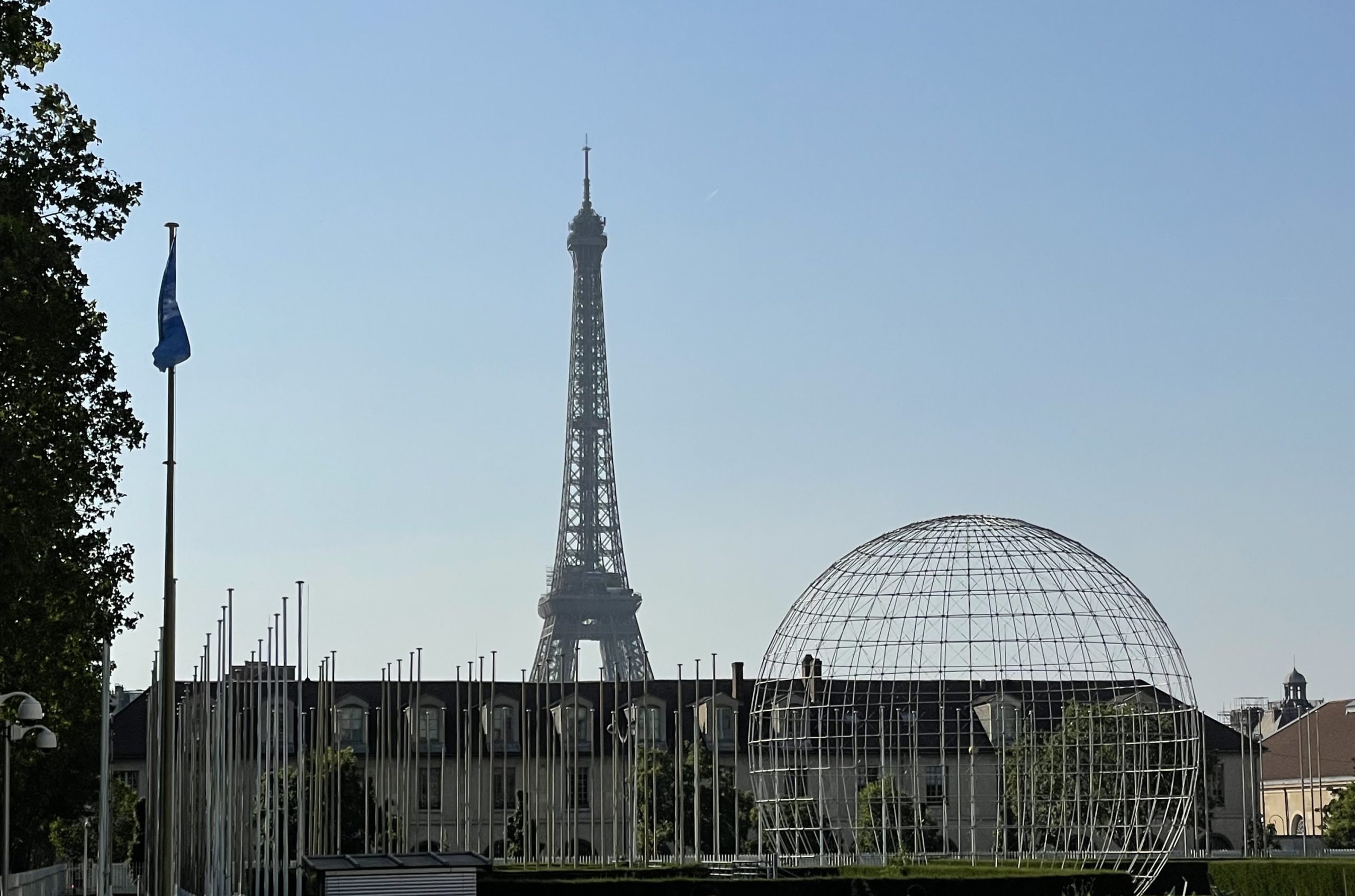Ending plastic pollution globally remains a top priority for the Sustainable and Just Economic Systems (SJES) programme at the Quaker United Nations Office (QUNO) in Geneva, Switzerland. Recently, SJES participated in the second session of the Intergovernmental Negotiating Committee (INC-2) focused on a treaty to end plastic pollution. This initiative of the United Nations Environment Programme (UNEP) concluded in Paris at the beginning of June, gathering various civil society organisations lobbying to end plastic pollution.
At INC-2, SJES was represented by programme associate Andres Naranjo and senior technical advisor Ronald Steenblik. They participated in numerous meetings and panel discussions, ensuring QUNO's voice and insights were heard. A highlight of their engagement was Steenblik's address at the “Promoting sustainable consumption and production of plastics” INC-2 side-event on May 29 [recording here]. In his presentation, Steenblik emphasized the crucial role of subsidies in the production and consumption of plastics, which artificially reduce the cost of virgin plastics and skew the market away from recycled plastics and environmentally friendly alternatives.
The SJES team also engaged in meaningful discussions with government representatives, sharing concerns and action strategies. A notable interaction occurred with Luis Vayas Valdivieso, the Deputy Minister of Foreign Affairs from Ecuador, who will chair future INC meetings.
Additionally, SJES initiated groundwork for a strategic policy paper on eliminating plastic subsidies. Collaborating with organizations such as the International Union for Conservation of Nature (IUCN), the team aims to develop this framework into a comprehensive policy brief for the third session of the Intergovernmental Negotiating Committee (INC-3), scheduled later this year in Nairobi, Kenya.
Our mission is to contribute to the establishment of a global treaty that addresses plastic pollution and upholds human rights. Our approach, outlined in our INC-2 closing plenary statement, aims to confront the plastic issue at its roots. We strive to implement rigorous rules that encompass the entire lifecycle of plastics, promote environmentally friendly, reusable alternatives, and push for transparency about plastic materials. We emphasize the uneven impacts of plastic pollution, which disproportionately affects local communities, indigenous people, waste collectors, women, and children. Thus, we advocate for regulations mandating product transparency, empowering everyone in the value chain to make informed decisions to combat plastic pollution.
In addition to the main INC-2 meetings, SJES participated in several workshops and discussions, using these platforms to further our advocacy. The Organisation for Economic Co-operation and Development (OECD) hosted a workshop titled 'Financing Plastic Pollution Solutions,' where the team expressed their concerns on the exclusion of tax mechanisms to end plastic pollution within the workshop. SJES also participated in an Environmental Investigation Agency (EIA) event examining the Plastics Treaty's role in tackling fishing gear, where Ronald highlighted the overlooked potential of natural-fibre substitutes for fishing lines and nets during a Q&A.
At the Break Free From Plastic (BFFP) event, "Making Reuse a Reality," Andres disseminated key findings from QUNO's report, "Package-less and Reuse Systems Through Policy Intervention: Rethinking Packaging in International Trade." This participation led to an interview invitation for Andres to further emphasize sustainable production and the pivotal role of reuse in combatting plastic pollution.
As we continue our efforts, we remain committed to promoting global understanding, transparency, and evidence-based strategies to address the world's plastic crisis.







